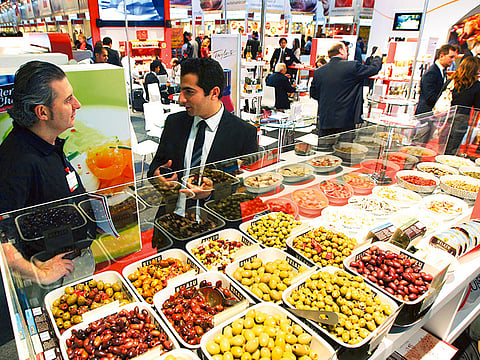Global 'Islamic Economy' will see a rebound by late 2021, says Dubai
This year will see 8% drop in spending by Muslims on halal products, services

Dubai: Global spending by Muslims on halal products and services will see a rebound by late next year and create an “Islamic economy” of $2.4 trillion by 2024.
Last year, they spent $2.02 trillion in categories such as halal food, modest fashion, family-friendly travel and halal pharmaceuticals. But this year could see an 8 per cent drop due to the outcomes created by the pandemic.
“However, spending across these Islamic economy sectors - excluding family-friendly travel - is forecast to rebound by end-2021,” says a statement from Dubai Islamic Economy Development Centre (DIEDC), which announced the results of the annual State of the Global Islamic Economy Report 2020-21.
"Tthe Islamic Economy sector has the potential to lead post-pandemic global economic recovery," said Sheikh Hamdan bin Mohammed bin Rashid Al Maktoum, Dubai Crown Prince and Chairman of The Executive Council of Dubai. "The need [is] to take advantage of fresh opportunities that can open new economic horizons and help both the region and the world overcome the repercussions of the pandemic."
Malaysia tops
Malaysia again topped the overall Global Islamic Economy Indicator as well as on Islamic finance, family-friendly travel, halal food and beverages, halal pharmaceuticals and cosmetics. The UAE led the way in modest fashion and halal-based media and recreation.
The Global Islamic Economy Indicator covered 81 countries this year, with Nigeria, Sri Lanka and Singapore joining in the Top 15 rankings, while Saudi Arabia and Indonesia moved up compared to last year.
"Disruptions resulting from the coronavirus outbreak have forced nations, including the UAE, to reprioritise and enhance focus on sectors such as food security," said Sultan bin Saeed Al Mansouri, Chairman of DIEDC. "It’s remarkable to note that the halal food and beverages sector, from manufacturing to trading, plays a key role in strengthening our nation’s self-sufficiency."
Sign up for the Daily Briefing
Get the latest news and updates straight to your inbox







